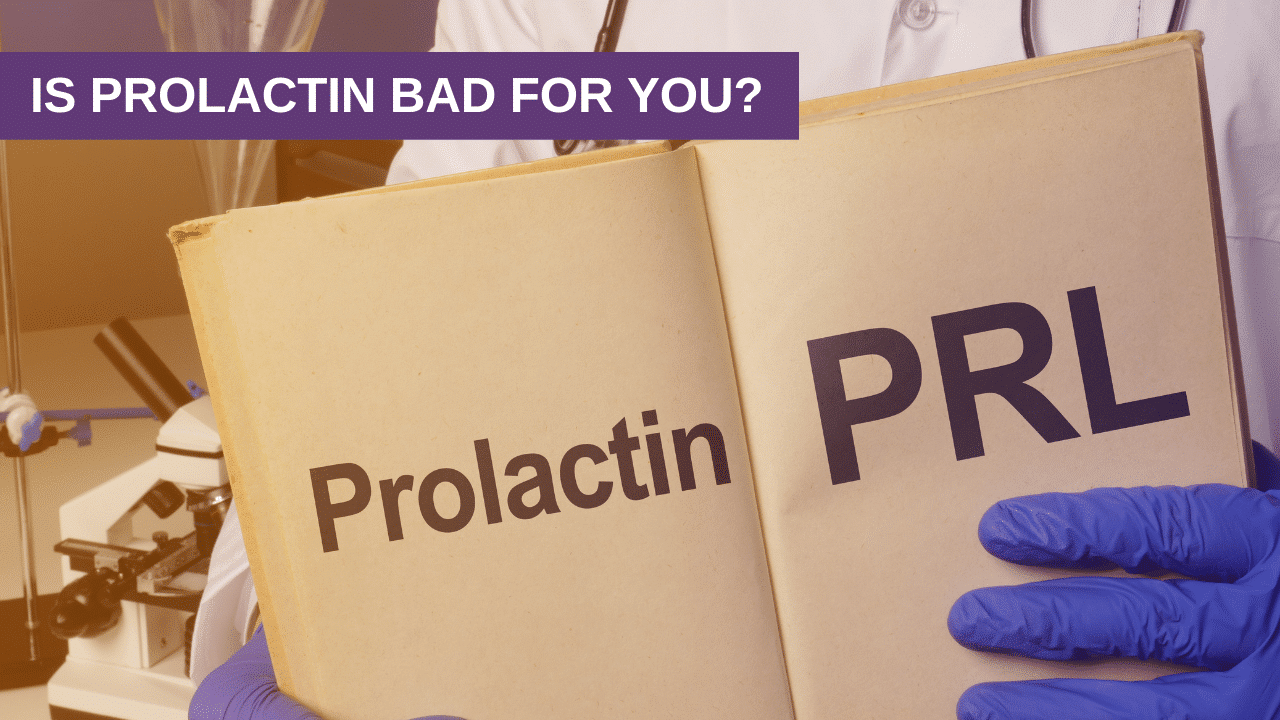What is prolactin and is it bad for you? Let’s talk about it.
Most people do not know what their prolactin levels are until they experience symptoms of high prolactin:
- Headaches
- Visual disturbances
- Milky breast discharge
- Breast pain
- Irregular periods
- Infertility
- Erectile dysfunction
I measure prolactin in all of my patients because dyscircadian prolactin levels will interfere with steroid hormone activity and may contribute to autoimmunity. Prolactin is produced by your hypothalamus and stored in your pituitary. Your hypothalamus produces prolactin-releasing hormone that directs the nocturnal secretion of prolactin. At night prolactin deepens your sleep and acts as an immune system modulator. It induces your thymus to program white blood cells known as T-cells to know the difference between you and others. If T-cells are not programmed properly, you can develop autoimmunity.
In the morning, your hypothalamus produces high levels of dopamine. Also known as prolactin inhibiting hormone which brings prolactin levels down and enhances hormone receptor site activity.
If prolactin is elevated during the day, you may have a hard time getting up in the morning.
You may feel like you’re sleepwalking because you’re still being sedated by prolactin. Since dopamine is your learning and memory neurotransmitter, when your hypothalamus does not produce dopamine to shut off prolactin, you will have brain fog, memory lapses, and difficulty concentrating.
Excessive prolactin during the day blocks your steroid hormone receptor sites. That’s good when a woman is pregnant because high prolactin helps to prevent her high levels of pregnancy hormones from inducing tumor growth. If you’re not pregnant, your prolactin should be low during the day and high at night.
Normal prolactin levels range from 2-23 ng/ml in males and 5-30ng/ml in females. I like to measure prolactin between 8 and 9 am. By 9 am your prolactin level ideally should be below 9ng/ml which indicates a healthy circadian rhythm and normal hypothalamic dopamine production.
If your level of prolactin is high, you can have symptoms of irregular periods, infertility, headaches, visual disturbance, milky breast discharge, breast pain, fatigue, and autoimmunity. Nearly all of my autoimmune patients whether they have rheumatoid arthritis, sjogrens, lupus, autoimmune thyroiditis, autoimmune hepatitis, or autoimmune alopecia tend to have prolactin levels that are too high during the day.
Prolactin is not bad. You need it.
But when prolactin is too high, or dyscircadian, you will not respond to your natural steroid hormones and that includes adrenal and sex hormones and you’re more likely to have autoimmunity.
My patients with hyperprolactinemia or even dyscircadian prolactin benefit from supporting their hypothalamus with Genesis Gold®. Genesis Gold® helps to support healthy hypothalamus function including normal circadian production of prolactin. If their prolactin levels are grossly elevated or if they have a prolactinoma which is a benign prolactin-producing tumor of the pituitary gland, I will use a dopamine agonist to shrink the microadenoma and lower excessive prolactin production. If they have a macroadenoma meaning greater than one centimeter is size, they may need to have it removed surgically.
I’ve had patients with infertility and even premature ovarian failure with hyperprolactinemia stárt taking Genesis Gold® while using just a small dose of bromocriptine in the morning be able to get pregnant in a very short period of time like less than three months.
Hypothalamic support is incredibly important to controlling prolactin levels.
If you have any questions about prolactin, please join me in our Hormone Support Group where I answer your questions live. You can access it by signing up for my free Hormone Reboot Training.
References:



0 Comments